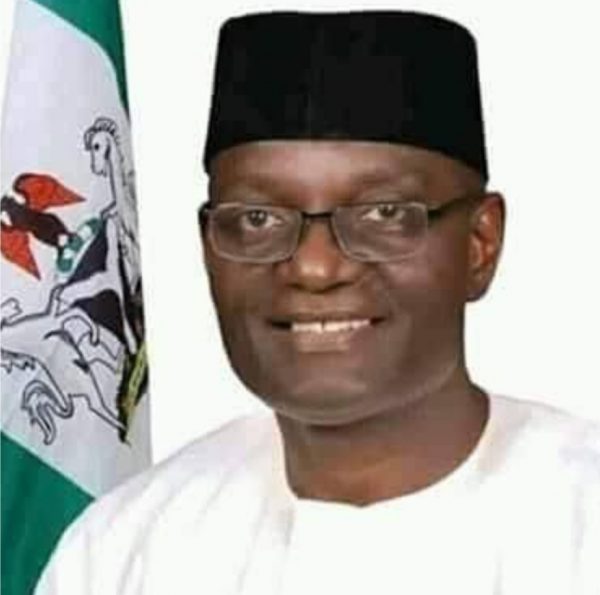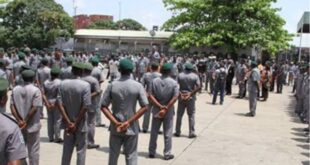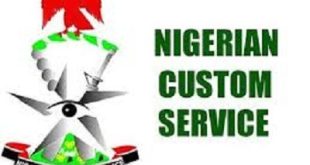
· Approval lacks integrity and transparency –a Director alleges
· Storage charge to be abolished

· Freight agents allege compromise, seek withdrawal of new charges
In the face of the turbulent agitation by freight forwarders against the latest increase in storage and demurrage charges by the terminal operators and multinational shipping firms, the Nigerian Shippers’ Council(NSC) has explained that it approved benchmark costs to encourage competition among the terminal operators, arguing that the new costs will also deter shippers and freight forwarders from deliberately converting storage spaces in terminals to warehouses.

But with an emerging superior argument that terminal operators inherited the storage spaces from the Nigerian Ports Authority(NPA) as they would have recouped their investment since 2007, storage charges may be abolished, soon, MMS Plus gathered.
“Foreign exchange applies in handling cargo because of the equipment but storage cost is constant” a source in the Council told MMS Plus. .
However, following the industry-wide agitation among freight forwarders and port users which raised questions on the propriety and process of the approval, the NSC has resolved to direct the terminal operators and shipping companies to withdraw the new bands of cost as a meeting has been scheduled with members of Seaport Terminal Operators Association of Nigeria (STOAN) and other stakeholders for Tuesday this week.
The approval anchored on subsidy removal, foreign exchange volatility, Nara depreciation and inflationary trend as argued by STOAN was alleged to have been micro-managed by a Council staff as it failed to get the buy in of stakeholders through engagements and ministerial approval, even as it has been roundly condemned by some key management members of the Council who felt it was an error and sought the understanding of the maritime industry stakeholders.
Nonetheless, in defense of NSC, a director in the agency who stated that the increase was to make the terminals competitive explained that the approval only provided a benchmark charge within which terminals were expected to adopt different pricing mechanism for storage spaces, and create choices for port users arguing however that two years ago when they called stakeholders engagements on new charges, everybody saw the need for the increment.
The source further asserted that increase in operating cost, which include handling charges were consummated then but storage and container demurrage were exempted, while stating further that terminal operators and shipping companies make mandatory payments in dollars to NPA and the Nigerian Maritime Administration and Safety Agency(NIMASA) as this makes the use of foreign exchange inevitable in the value chain.
The source berated shippers who have formed the habit of abandoning their consignments at the ports and terminals for three months while sourcing clearing fees, maintained that the port is not a storage centre or a warehouse, adding that the shipping lines have complained of losing billions of dollars over missing empty containers that are hijacked by shippers who choose to forgo the container deposits.
“Containers are returned to shipping companies’ world over except in Nigeria. Each container is expected to make five return trips in a year. But in Nigeria, containers are either stolen or the shipper hijacks the container”, the source noted.
In a conflicting mood, another director in the Council said “There was no basis for the increase. Usually, NSC recommends to the ministry which in turn gives approval for change in tariff. In this instance and many other instances in recent time, the ministry did not give approval. Ideally, there were supposed to be stakeholders’ meetings and buy in before implementation. There has to be economic and reality analysis of the claims made by STOAN to determine the possibility for a new increment.
“The rate of inflation, currency devaluation and fuel subsidy removal as claimed by the service providers have to be interrogated to determine the percentage increase before conceding to price increment. We will be meeting with terminal operators on Tuesday to suspend the new pricing template and set up a broad- based committee to look at it holistically.”
On the phased price increment, he said “The first increment was 400 per cent, the second one was 500 per cent and last one 600 per cent”, emphasizing however that the claims of forex volatility does not hold water here because it is a general problem in the country.
He, therefore, asked:“The telecom sector is also affected by foreign exchange, but have they increased their tariff? What about the Power sector, have the power distribution firms, DISCOs increased their tariff? Has the government increased workers’ salary? Why is it that it is only terminal operators that always want tariff increase? Are they the only investors we have in Nigeria? Come off this argument! We are talking about Storage charges which is a space that they inherited from NPA. They only paved it. Are they saying that since 2007 they have not recovered the money used in paving the terminals?
“They are supposed to reduce the storage charges. Let’s face the facts here. Has any terminal operator disclosed its profit profile? Let them submit their income and expenditure account for us to know their losses and increase their charges. You can’t be making excess profits and still want to stifle the economy. They don’t submit their operational activities to NSC as required by the concession agreement to even help in the regulatory function of the NSC but they get approval for increase in tariff. How do we assess their operation to know they are making profits or losses? This kind of faux pas has never happened in NSC.”
In reaction to this, for the first time, over 700 freight forwarders came under the umbrella of the Association of Concerned Freight Forwarders and Transporters(ACFFT) to protest against the arbitrary charges and other policy direction of the government as it affect them. They also asserted loss of confidence in all the existing registered freight forwarding associations, alleging compromise on professional collective interest as the exigency for the concerned platform, ACFFT.
In a communique issued and signed after an emergency meeting of this group by the National Chairman, Andy Omenogor and National Secretary, John Ubaka, ACFFT called on NSC to suspend all approval granted multinational shipping companies and terminal operators for the increase in handling charges, demurrage rent collection and storage charges until issues associated with delay in cargo clearance arising from inefficiencies are addressed.
They said the authorities should mandate the terminal operators and shipping companies to allow a grace period of 90 days for owners of cargoes already at the port and all concluded contracts entered under the old charges to take delivery of their consignments
They also requested an increase in the number of terminal rent-free days from the current three(3) days to fourteen(14)days due to the prevailing circumstances at the ports, which are affecting the smooth cargo clearance and delivery process. Similarly, the shipping company demurrage free days should be increased from five(5) days to 21 days.
The group further alleged connivance between terminal operators and shipping companies in creating bottlenecks in the cargo documentation and clearing process, adding that it should be dismantled through deployment of technology for modern ports operation.
The National Executive Committee(NECOM) of the Association of Nigerian Licensed Customs Agents(ANLCA) led by the National President, Chief Kingsley Emenike had also visited the leadership of STOAN seeking the suspension of the new tariff.
The Founder of the National Association of Government Approved Freight Forwarders (NAGAFF), Dr. Boniface Aniebonam on Thursday appealed to freight forwarders to remain calm in the face of the planned increase of charges by terminal operators.
Aniebonam who agreed that the terminal operators deserve increase in charges because of high cost of operations following the oil subsidy removal, however said they should come to the negotiating table with the Nigerian Shippers’ Council.
He urged the ports economic regulator (NSC) to urgently call for an emergency meeting where negotiation for the increase will begin.
The NAGAFF founder in a statement said: “The truth of the matter is straight forward and unambiguous for us to understand that their operational cost have increased thereafter the removal of oil subsidy. Therefore the urgent need for them to break even as business enterprises cannot be over-emphasized.
“What shall be most appropriate at the moment is for the Nigeria shippers Council to call for an emergency meeting of the stakeholders and the terminal operators to seat and work out a competitive price increase that is reasonable and affordable”.
However, Aniebonam added that in the interim, there is urgent need to stop the arbitrary increase.
According to him, this was the only way to avert what he described as “the looming unrest in the customs ports by the freight forwarders”.
He called on the freight forwarders to exercise restraint and cooperate with the government authority to broker peace over the issue at the ports.
He argued that it was “very important that terminal operators should always seek for approval of increase on charges from the appropriate authority in the transportation ministry and due consultation with the stakeholders”.
He added, “dialogue, consultation and communication are the ways going forward in conflict resolution other violence.
“We share their difficulties like any other in Nigeria. On the sideline the comptroller General of customs is being called upon to ensure that appropriate customs duty assessment on imported goods follow standard operating condition. At the moment it seems that imports into Nigeria are being over valued for customs purposes.
“The quest to meet revenue target may be the remote cause other than the pursuit for trade facilitation and compliance to import and export regulations. It is my hope that with the lifting of ban on the 43 items that the compliance level shall increase in making declaration for customs purposes”.
Aniebonam regretted the rivalry between his association and the Association of Nigerian Licensed Customs Agents (ANLCA) on the issue, adding that there was the need to see reasons to close ranks and work together for the common good of the greater numbers of freight forwarding practitioners.
 MMS PLUS NG – Maritime, Aviation, Business, Oil and Gas News Online Newspaper with coverage in Maritime, Oil and Gas, Aviation, Power and Energy as well as Financial News
MMS PLUS NG – Maritime, Aviation, Business, Oil and Gas News Online Newspaper with coverage in Maritime, Oil and Gas, Aviation, Power and Energy as well as Financial News









